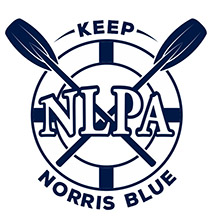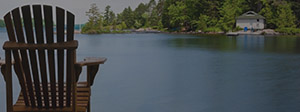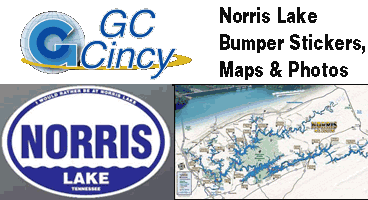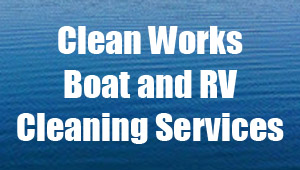









It is the responsibility of the Tennessee Wildlife Resources Agency to enforce and administer the provisions of the "Tennessee Boating Safety Act." Enforcement officers of the Agency are on the water to assist boaters as well as to enforce laws and to provide control when necessary. Every officer of the Agency has the authority to stop and board any vessel subject to the State Boating Act. They may issue citations or, when necessary, they may arrest, on sight, without warrant, any person they see violating any provisions of the Act.
Most Agency vessels may be recognized by the orange and green stripes near the bow and the words WILDLIFE RESOURCES on the sides; however, unmarked vessels are also used. Boaters who are signaled to stop must do so immediately and maneuver in such a way that the officer may come along side or come aboard.
TWRA officers monitor marine radio channel 17 and can also be contacted through the regional TWRA dispatcher at the toll-free number.
It is unlawful to operate any sail or powered vessel while under the influence of intoxicants or drugs. Here are some important facts to consider:
Implied consent: All persons operating a sail or powered vessel have given their implied consent to a sobriety test. Failure to consent to testing is a separate offense and may result in suspension of vessel operating privileges for six months.
Presumption of Guilt: A vessel operator whose tests show .08 of alcohol is presumed under the influence and his or her ability to operate a vessel is impaired.
Blood-alcohol test required: State law requires that blood-alcohol content be taken from all operators involved in an accident where death or serious injury occur.
Penalties: Conviction for operating under the influence will result in fines of up to $2,500 on the first offense, $2,500 on the second offense and $5,000 for the third offense. A jail sentence of 11 months and 29 days may also be imposed for any conviction, probation is mandatory for any offense, and operating privileges may be suspended from one to ten years. Additional federal penalties may also be charged.
Persons under 12 years of age may not operate a powered boat unless they are accompanied by an adult who can take immediate control of the vessel. An exception is made if the boat is powered by an outboard motor of 8.5 horsepower or less. A further exception is made for unaccompanied operators between the ages of 10 and 12 if the boat is over 14 feet long, powered by an outboard motor of less than 15 horsepower, and the person has successfully completed a boating education course approved by the Tennessee Wildlife Resources Agency.
Reckless operation of a vessel, water skies or similar device is one of the most serious offenses in Tennessee boating law. Violations are punishable by a fine of $2500 and six months in jail. Additionally, the Coast Guard may impose a civil penalty of up to $5,000 and imprisonment of one year. Reckless operation is defined as any act which endangers life, limb or property.
Examples of reckless operation are:
The owner of a vessel may be responsible for any injury or damage done by his or her vessel whether the owner is present or not. This shall not hold true if the vessel is used without the owner's consent.
Any boating accident involving death, or injury requiring medical treatment beyond first aid, or the disappearance of a person should be reported as soon as possible, and must be reported within 48 hours.
All accidents involving property damage in excess of $500 (to one vessel or a combination of both vessels) must be reported within 10 days.
The operator of every vessel involved in a reportable boating accident is required to file an accident form with the TWRA. Accident report forms are available from any TWRA office. Failure to report a boating accident is a criminal offense and may result in prosecution by the TWRA.
Giving assistance is required. Whenever a boat is involved in an accident, it is the duty of the operator to give necessary assistance, as long as it will not personally endanger the operator, the passengers, or vessel.
Incidents Involving Serious Injury or Death: Vessel operators involved in incidents where persons are seriously injured or killed may be charged with a felony resulting in a fine of $10,000 and 15 years imprisonment.
Personal watercraft are those vessels (boats) which are designed to be operated by a person sitting, standing, or kneeling on the craft rather than sitting or standing inside the vessel. It includes but is not limited to jet skis, wet bikes, wave runners, sea doos and similar craft. Personal watercraft are considered powered vessels and must adhere to the same rules as any other boat. They must be registered, carry flotation devices and be operated at a speed safe enough for the operator to avoid a collision or stop in time to avoid an accident.
Additionally, personal watercraft operators should be aware of the following:
Jumping the immediate wake (within 100 feet) of another vessel, weaving through congested vessel traffic and riding close to ramps, docks, or the shore is considered reckless operation.
All persons operating or using personal watercraft must wear a personal flotation device (life jacket), Type I, II, or III (Inflatable cannot be used).
No person shall operate a personal watercraft between sunset and sunrise.
Persons under 12 years of age may not operate a personal watercraft unless an adult is on board who can take immediate control of the boat.
Persons who allow an under-aged operator to use a personal watercraft may be prosecuted in addition to, or in lieu of, the operator.
Personal watercraft being used to tow skiers, surfboards or other devices must be equipped with 2 mirrors (at least 2 1/2 by 4 inches) or have a person, 12 years or older, to observe the progress of the skier. The mirrors must be mounted on each side of the personal watercraft (not on the handle bars).
Sailboards (windsurfers) are not considered vessels and do not have to be registered. A personal flotation device is recommended but not required for sailboards.
Before a person may carry passengers for hire on the navigable waters of the United States, an appropriate license must be obtained from the U. S. Coast Guard. This includes ferry service, fishing guide service or any operation where consideration (monetary or otherwise) is required from the passengers.
Only Type I PFDs are acceptable when carrying passengers for hire. Some equipment requirements vary with the classification of the vessel and the number of passengers carried. For questions about licensing and equipment requirements, contact the nearest U. S. Coast Guard Marine Safety office.
Boat races, marine parades and any other special aquatic events which may restrict local navigation or require additional patrol by wildlife officers, may not be held without first obtaining a permit from the Executive Director of the TWRA. The free permit may be requested by applying to the TWRA at least 30 days prior to the date of the event.
A U. S. Coast Guard approved personal flotation device must be worn by each person on board vessels being operated within specifically marked areas below any dam.
Engines of all motorized vessels must have an effective muffling system. The noise level of any motorized vessel may not exceed 86 decibels at 50 feet or more. Manufacturers may not sell vessels which do not meet the noise level requirements.
Any vessel used to tow a person on water skis, surfboard or similar device must follow these regulations:
Skiing is prohibited from sunset to sunrise and during inclement weather.
Vessels towing skiers must be equipped with a 170 degree, wide-angle rearview mirror or have on board a person 12 years or older, other than the operator to observe the progress of the skier.
Skiers must wear an adequate and effective life preserver, buoyant vest or life belt. If the device worn is not Coast Guard approved, then an approved device for the skier must be on board the towing vessel.
Citations to court may be issued to the vessel operator and/or the skier if the vessel or the ski are manipulated in a manner which endangers life limb or property.
Do not ski near, or in front of, tow boats or other large craft since their visibility is restricted and their ability to stop quickly or maneuver is extremely limited.
Driver and passengers must not sit on deck, gunwales or transom while the boat is in motion.
Unless otherwise marked, all vessels operating within 300 feet of a commercial boat dock must do so at a slow wake speed regardless of whether or not the area is marked by buoys.
"No wake" is defined as a vessel traveling at or below idle speed, or at such speed that the boat or its wake (waves) is not sufficient to cause possible injury or damage to other persons, boats, or property.
Boats must not operate within 50 feet of a diver's- down flag and a slow, no-wake idle speed restriction is automatically imposed within 200 feet of the flag.
A diver is any person who is in the water and equipped with a face mask, snorkel or underwater breathing apparatus.
All divers shall prominently display a diver's-down flag in the area in which they are diving and must surface within 50 feet of the flag. After dusk the flag must be illuminated so it can be seen from a minimum of 300 feet.
Any boat used as a necessary part of the diving operation must display, from its mast a diver's-down flag at least 18 inches x 24 inches in size and an international code flag Alpha so that they are visible from 360 degrees. After dark such boats shall illuminate their flags so they are visible from a minimum of 300 feet.








































 Welcome to Norris Lake located in the Norris Highlands, where water related recreational opportunities await in one of the TVA's cleanest lakes. Whether you come for boating, fishing, skiing, golfing, 4-wheeling or just relaxing, we feel that the area has it all, making Norris Lake your family vacation destination.
Welcome to Norris Lake located in the Norris Highlands, where water related recreational opportunities await in one of the TVA's cleanest lakes. Whether you come for boating, fishing, skiing, golfing, 4-wheeling or just relaxing, we feel that the area has it all, making Norris Lake your family vacation destination.